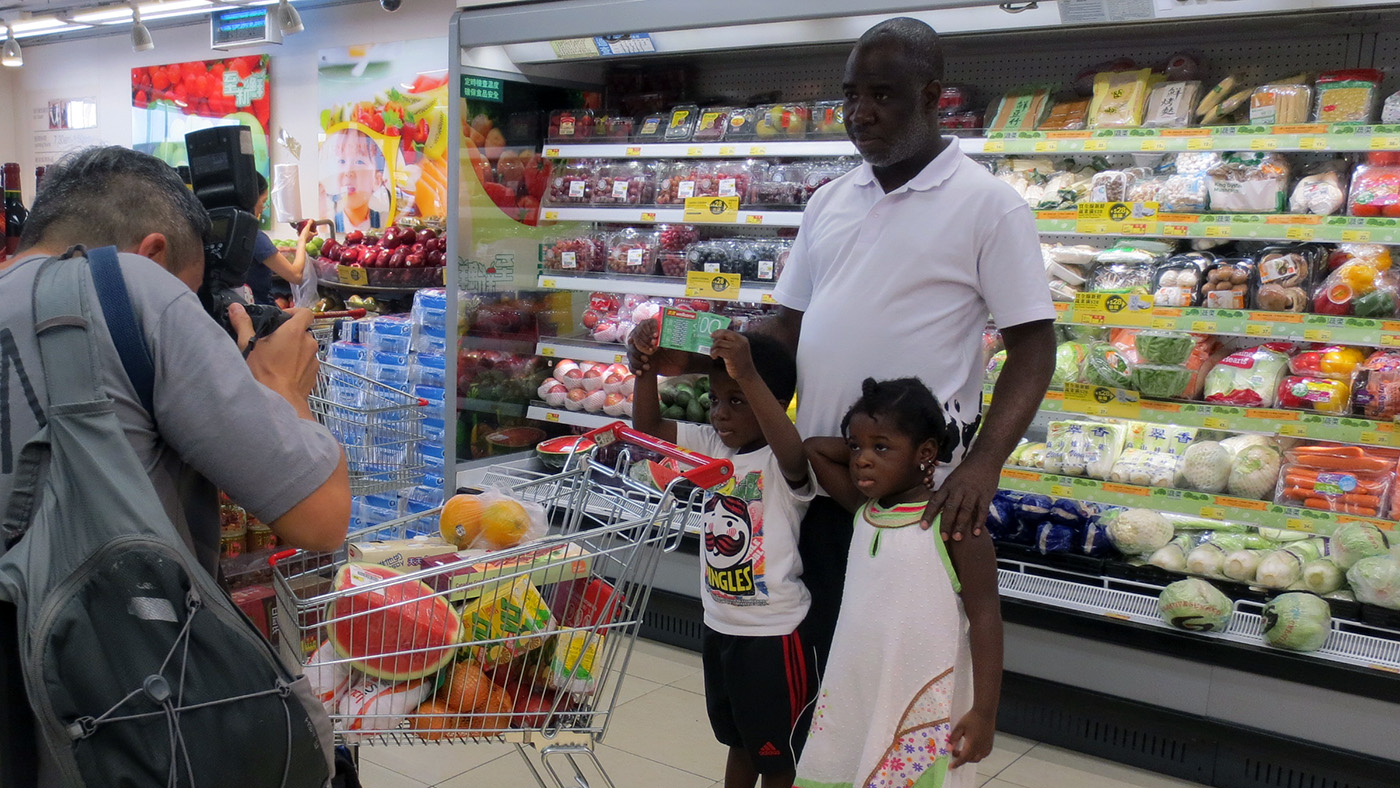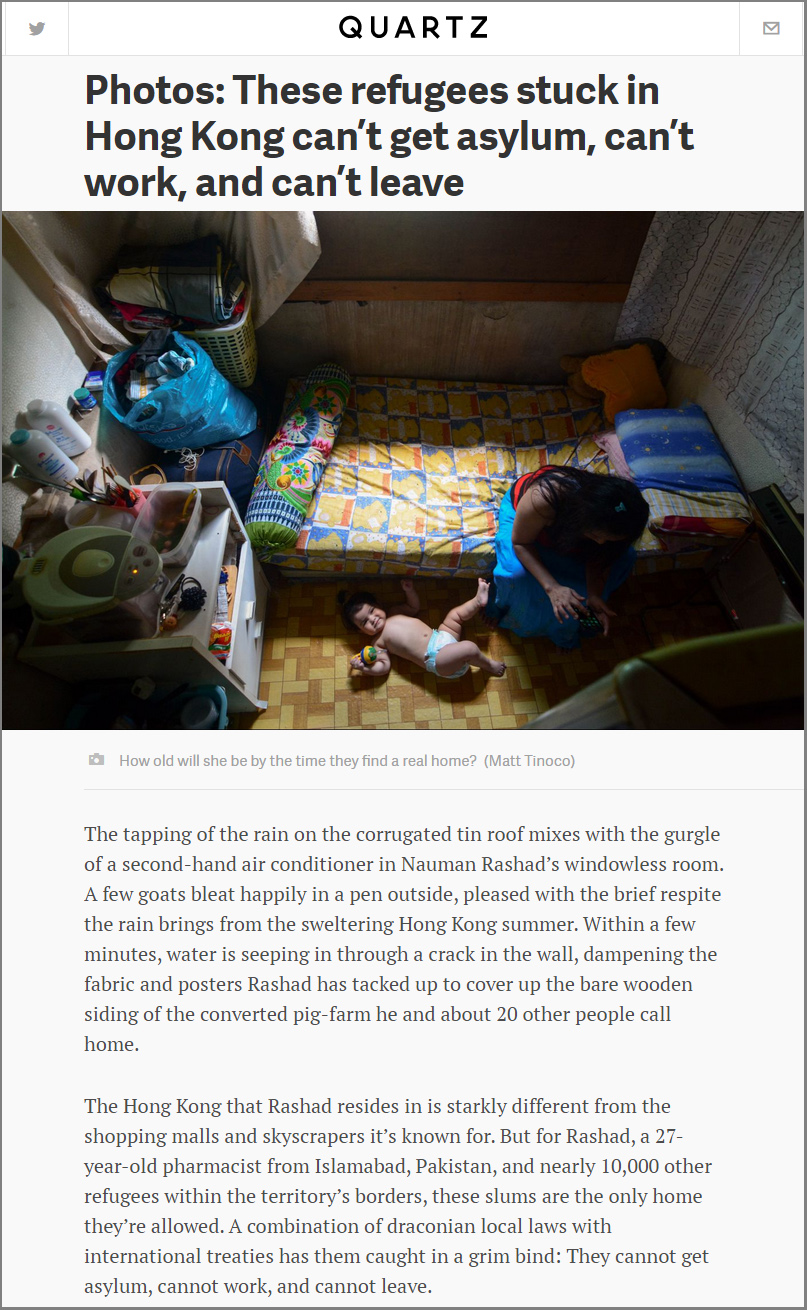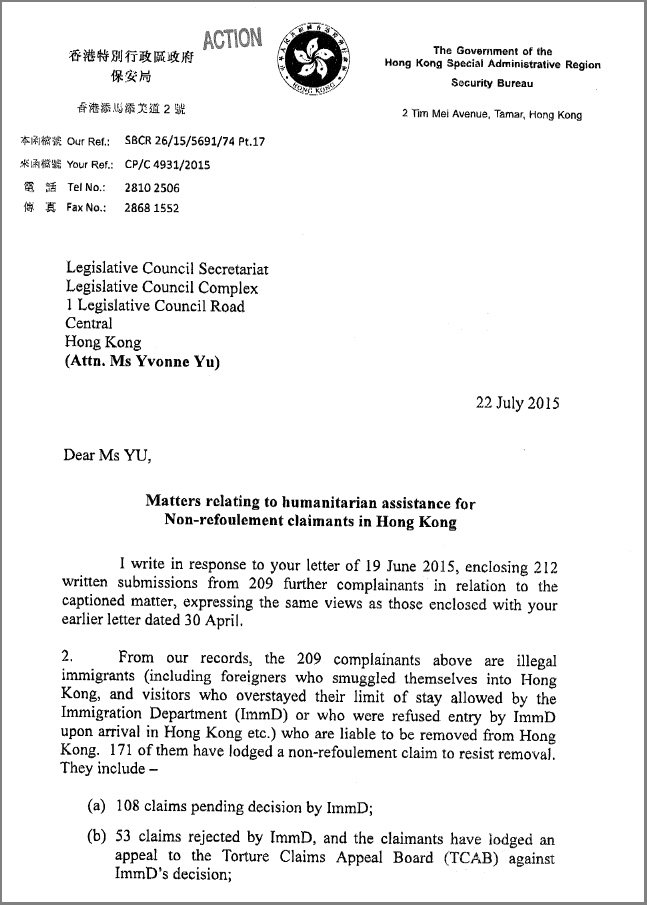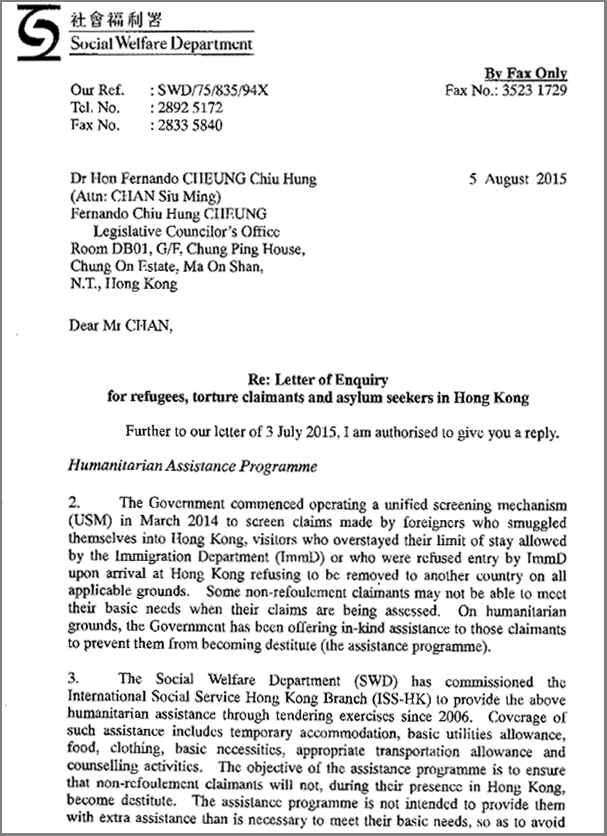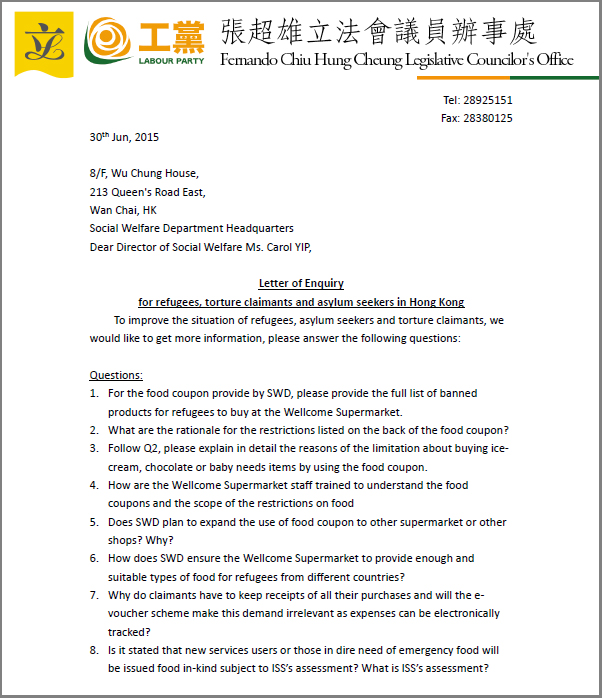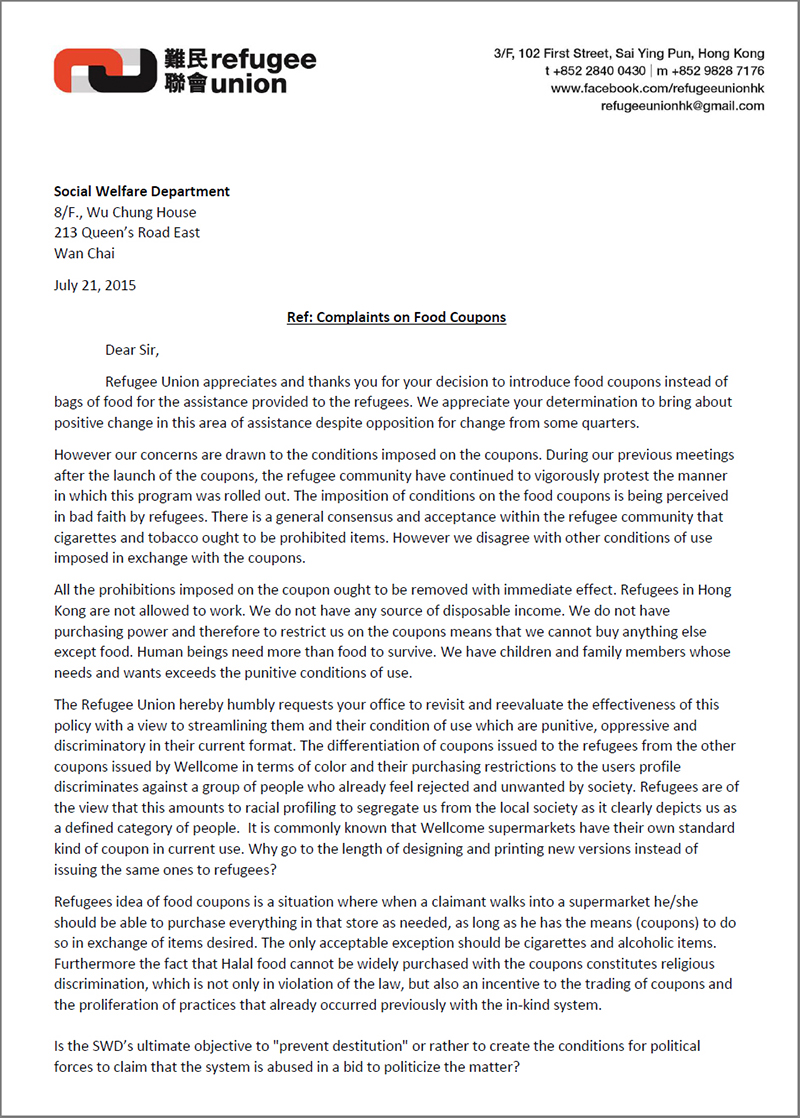Refugees stuck in Hong Kong can’t get asylum, can’t work, and can’t leave
Aug 17th, 2015 | Crime, Food, Housing, Immigration, Media, Rejection, Welfare | Comment
Security Bureau response to 500 complaint letters to the LegCo
Aug 17th, 2015 | Food, Government, Housing, Refugee Community, Welfare | Comment
Security Bureau replied to the Legislative Council Secretariat concerning 500 complaints letters lodged by members of the Refugee Union on the inadequacy of welfare support.
“Foreigners who smuggled themselves into Hong Kong, and visitors who overstayed their limit of stay allowed by the Immigration Department (ImmD) or who were refused entry by the ImmD upon arrival at Hong Kong (collectively “illegal immigrants”) are subject to be removed from Hong Kong in accordance with the Immigration Ordinance (Cap. 115). To safeguard immigration control and for public interest, they should be removed as soon as practicable.”
“Some non-refoulement claimants may not be able to meet their basic needs when their claim is being assessed. Since 2006, on humanitarian grounds, the Government has been offering in-kind assistance to these claimants to prevent them from becoming destitute (the assistance programme). Coverage of such assistance includes temporary accommodation, basic utilities allowance, food, clothing, basic necessities, appropriate transport allowance and counseling activities … The Government has enhanced the service package … since February 2014:
- Accommodation: the rent allowance grid per adult claimants has been increased to $1,500;
- Food: the budget for food for each claimant has been increased to $1,200 a month;
- Utilities: the allowance per claimant has been increased to $300 per month;
- Transport allowance: the allowance per claimant has been increased from $200 t0 $420 per month.”
“We will carefully consider all the views received, including the concerns expressed in the 291 + 209 cases enclosed in your letter, with a view to ensuring that the non-refoulement claims are screened in a fair and expeditious manner and deterring illegal immigrants and abuses to our current system. Meanwhile, we will continue to ensure claimants do not fall destitute whilst in Hong Kong.” (emphasis added)
Legislative Council report on complaint mechanism, dated 10 August 2015
SWD considering widening food choices to only exclude cigarettes and alcohol
Aug 7th, 2015 | Food, Government, Welfare | Comment
Immigration wastes 70,000 years in refugee lives
Aug 4th, 2015 | Immigration, Personal Experiences, Welfare | Comment
Hello, call me Outsider because I sought asylum in Hong Kong three years ago.
Recently there have been some sinister changes in the description of asylum seekers by the Government. One of the most sophisticated is turning the table on refugees by branding everyone an “illegal immigrant”. This wrong-minded propaganda does nothing to resolve the underlying issues. How many meetings were held? How much time and money were spent to come up with this brilliant idea?
Let’s look up the definition of “immigrant” (not illegal because refugees in HK have Immigration papers): a person who comes to live permanently in a foreign country. This definition has nothing to do with refugees. To label a group of people the first step should be getting to know them and understand their identity, narrative and objectives. One should understand who they are, not how we perceive them (prejudice), or how society treats them (discrimination). I suspect that Government is labeling refugees with the malicious aim of fueling public resentment and hostility.
Take my experience as an example. When I fled my country, where I was an established professional by the way, I was not dreaming of living in another country, particularly not Hong Kong. I cannot speak Chinese and I don’t practice kung fu, which is what this city was famous for where I grew up. Put simply, my objective was to save my life. I was arrested when leaving Hong Kong, not entering the city. I had no intention of staying, but have been stuck for three years already against my will.
Labelling refugees is aimed at residents, as it hardly affects who refugees are and how we evaluate the hostility we experience. I prefer to call myself a “runner for life” as I ran to save my life. No doubt you would have done the same! You can also call me an “outsider” as Hong Kong isolate me and makes me feel unwelcome. The Government does considers my needs, nor permits me to work to make a living.
Refugees most of all hate labels that are lies. I for one suspect that the Government is attempting to cast a negative name on refugees to stoke recrimination and hatred against our community, because they know that in truth it is the government policies that are to blame for the asylum mess in Hong Kong.
Some simple economic considerations might help to illustrate this problem:
There are about 10,000 refugees in Hong Kong who waste an average of 7 years to receive a (negative) decision on their asylum claim. Each refugee cost at least $3000 a month for rent and food, not including the cost of administration, lawyers, social workers, policing and detention. The total welfare amount alone is $2,500,000,000. Considering an average monthly salary of $7500, it would pay for 28,000 years of salaries!
I am outraged at the years and lives destroyed by the asylum process. How many years, and the most productive ones for that matter, does Immigration steal from refugees in the prime of their life? It is more than stealing because something stolen can be returned. Immigration is murdering 7 precious years that we can never get back. It is a priceless loss for persons in their twenties and forties who will never get their productive years back! Rejected after seven years of stress and pressure, nobody is the same person … people are lost, mentally broken, some even go crazy!
With the asylum process taking an average of 7 years, the above 10,000 refugees are expected to waste 70,000 years in Hong Kong, or the equivalent of about 1000 lifetimes. This is a tragedy and it doesn’t make sense to me. The result is that the current asylum process puts to waste 70,000 productive years (not young or old) and 2.5 billion dollars without accountability or consequence.
It is clear what Hong Kong Government has accomplished with 70,000 man-years and 2.5 billion dollars – nothing! What could the authorities do differently? WHAT WOULD YOU DO? How would you leverage these resources while finding a fair solution to the refugee dilemma? As Hong Kong takes great pride in its economic achievements, is it really impossible to productively deploy such manpower and capital?
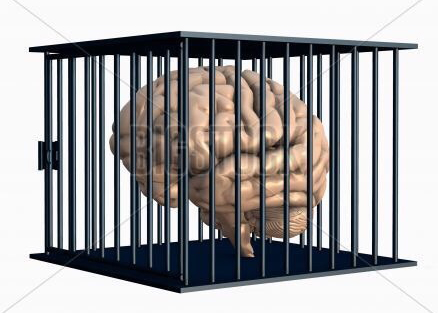
RU open letter to SWD on food coupons
Jul 22nd, 2015 | Food, Refugee Community, Welfare | Comment
Inside prison I work for the government
Jul 22nd, 2015 | Crime, Housing, Immigration, Personal Experiences, Welfare | Comment
I am scarred because I don’t want to go back to prison. I was sentenced to 15 months for working to support my family, but I didn’t do anything criminal. In my mind, it was political persecution because refugees don’t have a straight road to walk. We go the wrong way because we don’t get enough assistance. We work to pay rent and buy food, but the police arrest us for “unlawful employment”.
I am a South Asian refugee mother with two daughters. Honestly I tell you, it is impossible for us to live with 3000$ rent and food coupons. Refugees need cash for many things, like going to the market and buying Pampers, clothes and school supplies. That is why we must do part-time job for our families in the day to day struggle. Also, my mother back home is sick, but I have no money to help.
In 2012, I was arrested at a fish restaurant in Tuen Mun. The police catch me and my offence is taking unlawful employment. Now I wish to unburden myself and tell the truth that the judge did not consider. The ISS assistance did not pay my full rent and utilities. I have no husband so I have to worry about my girls and everything I have to buy for them. That is why I have to do work before and now.
I tell my problems to my case officer but she cannot help. “This is the rules”, she always tells me so I know that I have to find a way by myself. If the landlord kick us outside, what will happen to my girls? My friend introduced me to a boss who paid me 400$ to wash dishes all day. There is other work for women, but it is not acceptable for me because it is very dangerous and I have children.
Why inside prison have so many refugees working? Many resident prisoners refuse to work, or have mental problems, or do drugs before. Refugees are strong and hard-working. Inside prison we work for the Government of Hong Kong, for example, washing and ironing uniforms and hospital sheets. They pay us 5$ a day and get cheap labour from thousands of men and women refugees who cannot work outside. Why does it happen like this?
Before I am outside and I work for my family. When police catch me they send me to prison. Then I am inside prison and I work for the government. But still I am working: outside it was illegal because I cannot help the government, but inside it is legal because I can help the government. Would it be fairer for Immigration to let refugees work outside to buy what we need and not do crime?
Inside prison I cannot refuse to work because the officers shout at me. I must do the jobs that they give me all the morning and afternoon, also on Sunday. So please tell me if this is fair to refugees? Outside I cannot do work, but must survive without enough assistance. Inside I must do work like a slave for the Government for 15 months without a holiday and without choice. Is this right?
I don’t want to go back to prison. The police tell me that if catch again, next time they will fine me 50,000$ and put three years in prison. Now I don’t know how I can buy something that my daughters need. Every day and night I am going mentally sick and depression. Refugees are always scared of going to prison, even if their children are born on Hong Kong land and never see their parents’ country.
Also refugees have dreams for their future. I want a safe and healthy life for my children. I want them to be happy and not suffer like this. But what can I offer them? We cannot go back to my country and Hong Kong does not let us stay. I dream of a better future when I can do something good for children, because today they suffer too much.
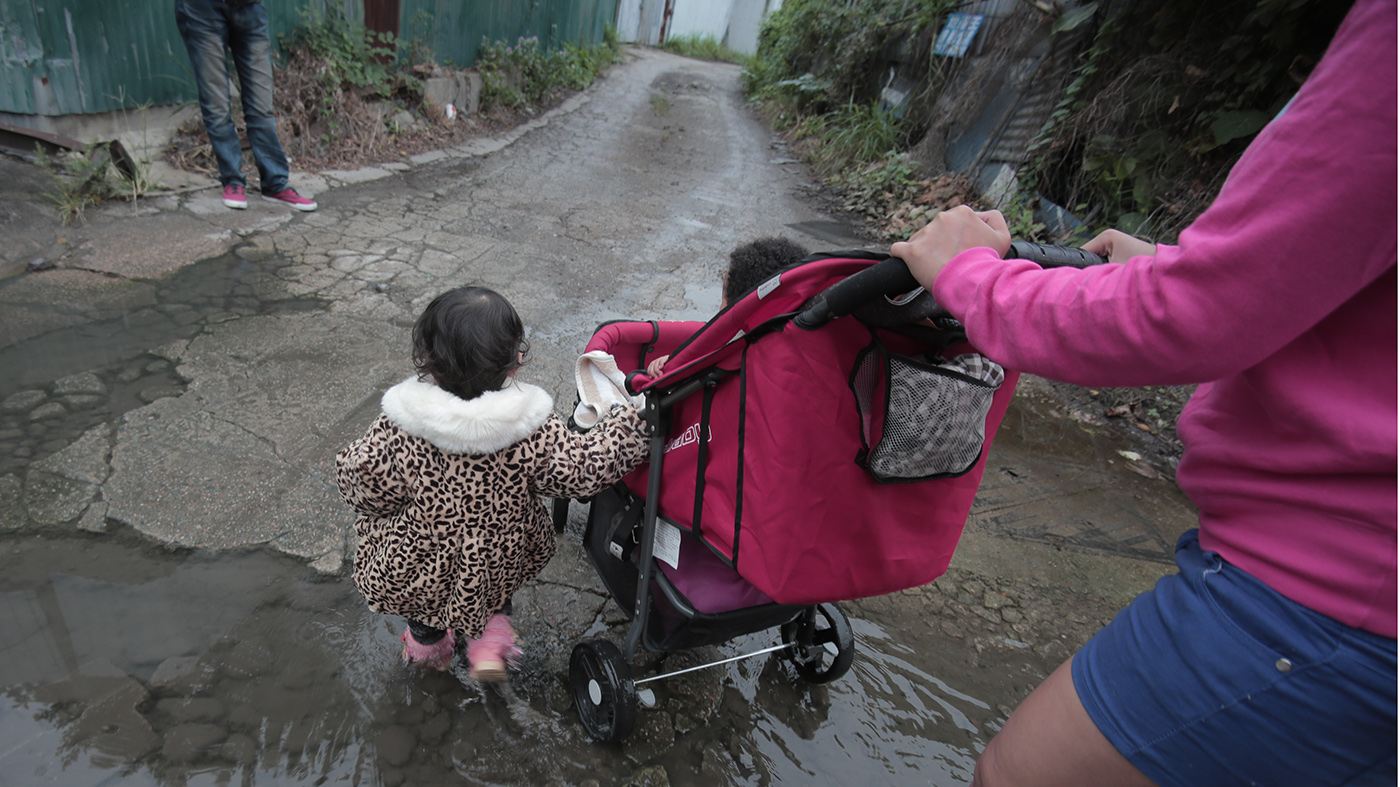
Eliminating violence in the securitization of refugee welfare
Jul 15th, 2015 | Advocacy, Crime, VF Opinion, Welfare | Comment
Vision First reported the case of a refugees in a wheelchair allegedly assaulted outside the premises of the service provider for refugees. While perhaps an isolated case, it nonetheless raises disturbing questions about the unfortunate securitization of refugee services.
First, “I came to Hong Kong as a victim of violence and here I suffer violence again,” sighed this distraught refugee as he reported being roughed up by security guards. A question may be raised as to the need for such a visible display of uniformed security guards in a setting where ‘humanitarian’ services are offered to people whose motivation for fleeing abroad relates to similar displays of an ostensible monopoly of violence. This refugee’s words brings to light the harsh confinement, subjugation and control of an underclass of 10,000 refugees, as well as what appears to be an inadequate understanding of refugee vulnerability.
Second, such an episode brings to light again questions about inadequate assistance. This refugee suffers medical conditions deemed worsened by his accommodation. And yet alternatives were not promptly offered. Behind the confrontations between case workers and refugees, behind the arguments over low assistance and high rent, and behind the swelling hatred stoked by the Hong Kong Government’s ‘humanitarian assistance’ lies the root of the problem.
Third, most evidently, if the refugee had indeed been given an appointment, why was he denied entry for hours? A structural dysfunctionality seems to exists on which Dr. Martin Luther King’s universal observation – interestingly written from inside a prison cell – may shed some light: “An unjust law is a code that a numerical or power majority group compels a minority group to obey, but does not make binding on itself. This is difference made legal.”
A refugee advocate interpreted such injustice, “I was told to find a room for 1500$, but my case officer knows it is impossible. If it were possible, why doesn’t he find it for me?” Arguably, the distribution of humanitarian assistance achieves the exact opposite of its stated objective. While it does little to prevent destitution, it dehumanizingly labels refugees as a burdensome, problematic and overly-demanding group that fails to appreciate the compassionate assistance and ostensible effort put in their care.
Faced by daily displays of emotional refugees, even security guards may lose the little empathy they had, addressing everyone with unsympathetic indifference, as tempers reach boiling point. An outspoken refugee who witnessed the wheelchair incident revealed that “The police had arrived. He was restrained and placed on the wheelchair. It was embarrassing to be a refugee. Anyone outside would see him and say ‘Refugees are crazy!’”
Fourth, it appears obvious that overly dehumanizing conditions can be either interiorized or resisted by refugees. A refugee advocate explained, “We should find a smarter way to solve our problems without giving people the opportunity to think that refugees are crazy. As refugees we should do something smart, something beautiful. Any injustice is an injustice, but it is also an opportunity for us to show it to the public.”
His words carried wisdom gained through years of imposed hardship, “We have to cure the disease, not cure the symptoms.” Focus ought to be drawn on the general context, rather than the outcome of individual behaviour, whether it is restrained and submissive, or not.
Vision First vigorously wages non-violence against social injustice, especially when sanctioned by state power in the unjust oppression of the most vulnerable in society, irrespective of immigration status.
An onerous corollary is our duty to expose and eliminate any form of violence in what, as a fifth point, can be said to emerge as the ongoing securitization of refugee welfare, manifested in the slums, food distribution, detention, criminal prosecutions, and manhandling of refugees.
Lastly, would Social Welfare Department staff shoved and pushed protesting refugees? Would the SWD condone such unwarranted conduct by its own security guards?
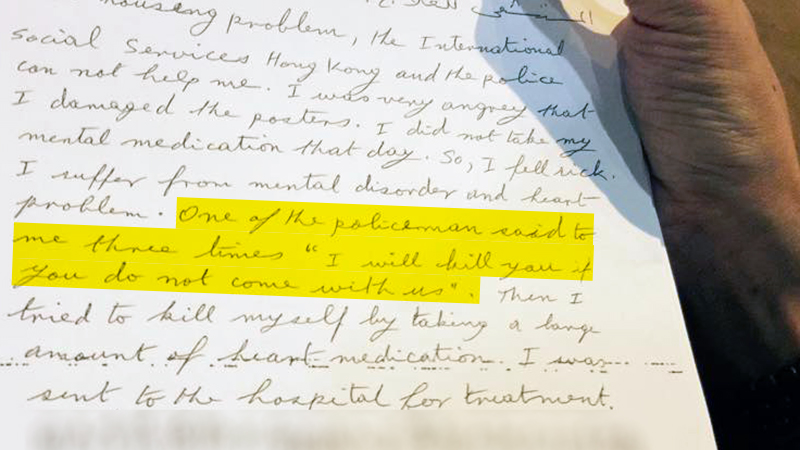
Are hungry refugees denied food coupons?
Jul 9th, 2015 | Food, Personal Experiences, Welfare | Comment
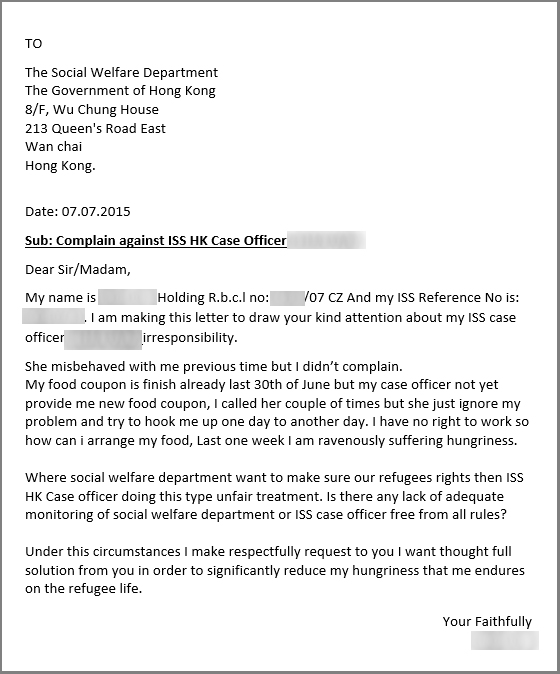
Food coupons: list of excluded items urgently needed
Jul 6th, 2015 | Food, VF Opinion, Welfare | Comment
Refugees are not allowed to purchase certain products with the newly introduced food coupons. On 8 June 2015, the Legislative Council “Panel on Welfare Services” suggested that the Social Welfare Department, or its contractor ISS-HK, produce a detailed list of excluded products. The list would help avoid, or at least minimize, arguments between refugees and cashiers that inconvenience impatient customers at busy check-out counters.
There are plans to expand the coupon network to other supermarkets to increase product variety (including Halal and ethnic choices) and price competitiveness, as the 280 stores operated by Wellcome are not known for the cheapest prices. Meanwhile, cashiers require training and guidelines to reduce the subjective interpretations of the “Terms and Conditions” printed on the back of coupons.
Here is an example of the challenges faced by refugees: a mother shared on the Refugee Union chat, “One of my friend went to Wellcome and wanted to buy milk for her baby and the cashier say that she can’t buy the milk with the coupon. So what is the use of the coupons that we get from ISS if we can’t buy the milk for our babies?” A member updated the group, “After the fight at last she got the milk. I think it depends on the Wellcome staff.” Another offered a thoughtful solution, “We need to present our problems as mothers to the Social Welfare as quickly as possible.”
A Vision First member reported that she had successfully purchased baby formula at several Wellcome stores, until it ran out in her neighbourhood. Babies can be incredibly fussy about what they eat. The mother broadened her search and found the preferred brand at a 24-Hour Wellcome, only to be told that the coupons were not accepted for “baby needs”. After assuring the manager that other branches allowed the purchase, she left with a hungry, screaming infant.
A refugee family traveled to Causeway Bay to shop at a Wellcome store that offered a large variety of fresh vegetable and fruits which their three children could not enjoy under the previous in-kind food distribution. It was evening and the store was especially busy. The cashier was confused and called the manager who inspected each item in the shopping cart: Nutella was removed “because it is chocolate”; chicken fillets were removed “because they are not frozen”; potato chips were removed “because they are snacks”; vinegar was removed “because it contains alcohol” …
The mother and children were embarrassed by the protracted and fastidious inspection executed under the intrusive stare of a growing queue of annoyed customers. The husband was downright offended. He was insulted by the examination, yet had no recourse against such degrading treatment if he wanted to collect groceries for his family. He vowed never to return, which was probably of little consolation.
Are food coupons and the absurd policing of shopping cart meant to introduce a new form of humiliation that refugees must submissively endure to remain in our city? It has been reported that refugees must present all their receipts to caseworkers in order to receive coupons for the following month. What is the point of this practice if Wellcome staff already performs the inspection?
There are many reports of coupon-bearers being denied baby formula, fresh milk, non-frozen meats, as well as sweet and savory goods that could be classified as ‘snacks’. No wonder the trading of food coupons is already underway, selling for about half face value to the same astute middlemen who previously profited from emergency rations and now trade in valuable coupons.
Vision First urges authorities to scrap the products ban, or at the very least to promptly publish the list of excluded items, as the terms and conditions carried by the food coupons remain open to interpretation.
